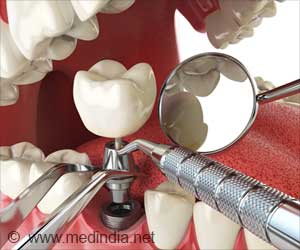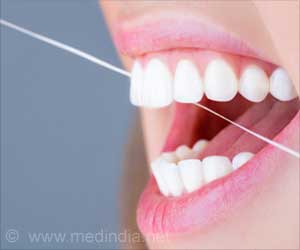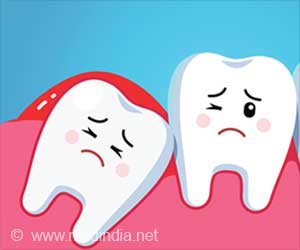Researchers have still not been able to arrive at conclusive evidence regarding which method is the most effective in treating bad breadth.
Researchers have still not been able to arrive at conclusive evidence regarding which method is the most effective in treating bad breadth . The choice of using mouthwashes, breath mints, chewing gums, sprays or mechanical tongue cleaning is left to convenience of an individual.
'From the results of some low-powered trials, tongue cleaning, scraping and brushing do appear to have some benefit at reducing halitosis, and the effects appear to be short lived,' said co-investigator Zbys Fedorowicz, a periodontist at the Ministry of Health in Bahrain. 'But we were unable to find any reliable evidence confirming any benefits of using tongue-scraping over mouthwash, or vice versa, at reducing halitosis.'The review appears in the most recent issue of The Cochrane Library, a publication of The Cochrane Collaboration, an international organization that evaluates medical research. Systematic reviews draw evidence-based conclusions about medical practice after considering both the content and quality of existing medical trials on a topic.
The review was conducted by a team from the Bahrain Branch of the UK Cochrane Center based at the Ministry of Health in Bahrain. Dr. Fedorowicz is also the director of the UK Cochrane Center in Bahrain.
Halitosis, a general term used to describe any disagreeable breath odor, usually originates from the gums and from the furrows on the surface of the tongue. Accumulated bacteria created by the decay of food particles and other debris in the mouth cause odor. The decay and debris produce volatile sulfur compounds -- or VSC -- that can cause ‘bad breath.’
'Halitosis is ubiquitous, and in the developed world is considered a very private personal yet very public issue associated with personal hygiene and body image,' said Dr. Fedorowicz. 'In parts of the developing world there is an increased awareness of dental hygiene, and attention to oral malodor is also considered an increasingly important part of personal grooming.'
Currently, there are no standard and accepted methods for treating the odor associated with halitosis. Mouthwashes, mints, gums and sprays provide a competing and temporary smell that masks the odor. Some mouth rinses have ingredients that can neutralize the odor or the bacteria that produce it.
Advertisement
Although Fedorowicz said tongue brushing scraping and cleaning 'have been in and out of vogue with no apparent clear guidance from the dental profession,' the review authors all recommend periodic use of a brush.
Advertisement
Researchers in one trial reported a 42 percent reduction in volatile sulfur compounds with tongue cleaning, 40 percent with tongue scraping and 33 percent with the tooth brushing. 'Reduced VSC levels persisted longer with the tongue cleaner than the toothbrush and could not be detected for more than 30 minutes after the intervention in any of the groups,' the Cochrane review team said.
Researchers in the second trial reported a 75 percent reduction of VSC levels after use of the tongue scraper and 45 percent with the toothbrush.







